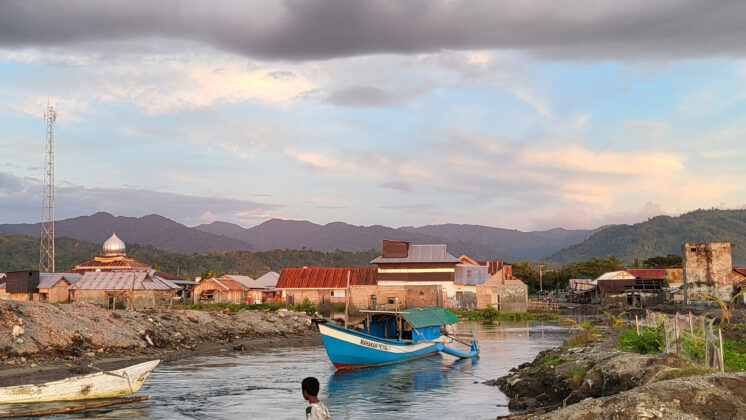Hidden away in an ambitious piece of financial sector reform legislation, the US Congress has passed a law aiming to cut the link between mineral trade and persistent conflict in Eastern DRC. It is a laudable goal, but the means employed risk causing considerable economic damage in Eastern Congo, according to the Goma-based Pole Institute. The end effect would then be the opposite of that intended: pushing people towards conflict rather than leading them towards peace. Pole Institutes warns for a simplification of the real motives and dynamics behind the Congolese conflicts.
Hidden away in an ambitious piece of financial sector reform legislation, the US Congress has passed a law aiming to cut the link between mineral trade and persistent conflict in Eastern DRC. It is a laudable goal, but the means employed risk causing considerable economic damage in Eastern Congo, according to the Goma-based Pole Institute. The end effect would then be the opposite of that intended: pushing people towards conflict rather than leading them towards peace, writes Dominic Johnson.
The "conflict minerals" legislation is contained in Chapter XV (Miscellaneous Provisions) of the Dodd-Frank Wall Street Reform and Consumer Protection Act, a monster of more than 2300 pages passed by the US Senate on 15 July after a similar vote of the House of Representatives on 30 June. It was signed into law by President Barack Obama on 21 July.
The legislation is the fruit of intense lobbying by international and especially American NGOs aiming to suppress Congolese "blood minerals" whose trade supposedly makes war crimes in DRC possible - an analysis which, we contend, is an extreme simplification of the real motives and dynamics behind Congolese conflicts. These NGOs were of course very pleased with their "victory" in Congress and made this sentiment public on 16 July. According to Glbal Witness, these "landmark reforms", which also include requirements of transparency and payments disclosure in all extractive industries, are "a huge victory for corporate accountability" which will promote "responsable trading practices". John Prendergast, founder of the "Enough" campaign, called the law a "huge victory" with which "the world moved a step closer to ensuring that the supply chains for our laptops and cell phones do not finance violence in eastern Congo".
Economic operators on the ground are more circumspect. John Kanyoni, an established mineral trader in Goma and president of the Association of Comptoirs in North Kivu, said in a letter to the Economic Section of the US embassy in Kinshasa on 16 July that he was "totally shocked". The measures passed by Congress, he continued, were "in fact an embargo on materials from the Great Lakes Region... and even the whole African continent... Asking all the manufacturers to track every piece of metal in every single item they make is a gentle way of just telling them: Don't buy from DRC and adjoining countries, which is an embargo de facto". With the "unilateral US action", Congress was making existing and quite advanced international initiatives for transparency and due diligence in the Congolese mineral trade "of no consequence". "The consequence of the US regulations will be that thousands of Congolese will be jobless and might most probably join the armed groups.. We keep busy thousands of people without a chance of getting jobs."
Industy scepticism is already apparent. The American Jewellers' Association said on 15 July that the new legislation was a "nightmare" and "impractical" because the means of verifying the exact source of every mineral did not exist - unless one only used products from specific mines, not mixed with any other produce from other sources. Other reports indicate that the electronic industry is already looking at alternative mineral supplies. It must be stressed that the new legislation does not just affect the DRC, but all "adjoining countries" too: Angola, Zambia, Tanzania, Burundi, Rwanda, Uganda, Sudan, the Central African Republic, the Republic of Congo (Brazzaville) - half the African continent, and a very mineral-rich region.
There is in our opinion a real danger that initiatives like this will, through trying to eradicate illegal trade which feeds armed actors in the DRC, kill the entire trade. The efforts and costs involved in tracing, disclosing and verifying the exact source of mineral components and submitting to an independent audit will lead international enterprises to either ignore the law or to turn their backs on the Great Lakes Region in order to reduce risk. Even if business plays by the rules, the legislation will make Congolese resources more expensive without any benefit to the Congolese themselves. The only beneficiaries will be the international consultants who carry out verifications, audits and mappings.
It must be stressed that the economy of Kivu would collapse if mineral export revenues dried up. Following decades of conflict, almost everything is imported, and the foreign exchange needed for this comes either from mineral exports or from international aid or UN spending. As this second source is about to diminish, following progressive reductions in humanitarian aid and MONUC activities, Kivu's economic dependence on the exploitation of its natural resources is due to increase in years to come. This situation may be deplorable, but Kivu's population will not find peace by losing its only own sources of revenue - in fact, quite the opposite is likely.
Pole Institute calls for a broad cross-border consultation involving public and private actors on the ground in order to find practical ways of promoting responsibility in the natural resource trade which develop the economy instead of killing it.











